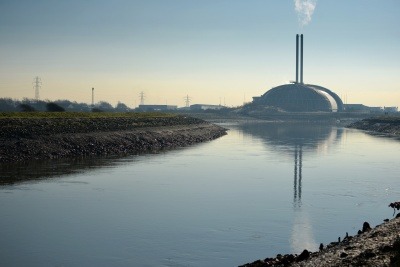XR calls for Prime Minister to decarbonise waste sector
A coalition of leading environmental organisations and individuals, including climate activist group Extinction Rebellion (XR), has sent an open letter to the Prime Minister calling on the Government to reduce the scale of Energy-from-Waste (EfW) in the UK.
The letter, which was written by the XR Zero Waste group, calls on the UK Government to implement measures to achieve net zero carbon emissions in the waste and resource sector by 2035, and climate neutrality by 2050.
 Highlighting the growth of EfW in recent years, which is set to double in capacity by 2030, XR cites the Committee on Climate Change’s warning that the UK is not set to meet the fourth or fifth carbon budgets (2023-27 and 2028-32).
Highlighting the growth of EfW in recent years, which is set to double in capacity by 2030, XR cites the Committee on Climate Change’s warning that the UK is not set to meet the fourth or fifth carbon budgets (2023-27 and 2028-32).
The letter goes on to urge the Government to reconsider plans to expand the country’s EfW capacity, noting that this form of energy recovery will result in an additional 10 million tonnes of fossil fuel-derived carbon emissions released into the atmosphere each year and drive the UK further from its 2050 net-zero target.
Rembrandt Koppelaar, environmental economist and co-author of the letter, commented: “The UK will not be able to deliver on its net-zero commitments unless the government intervenes in the waste sector.
“The past decade has witnessed a rapid expansion of EfW incineration capacity, which has already led the sector’s carbon impact to reach 7.4 million tonnes. Last year waste incineration gave rise to 13 per cent of the greenhouse gas emissions associated with electricity generation, even though it provided only 2.4 per cent of the UK’s electricity.”
Dr Anne Velenturf of the Resource Recovery from Waste (RRFW) programme added: “Building EfW plants now, when we need to decarbonise, is inconsistent with the Paris Agreement and the UK’s legally binding net-zero commitments.
“Ministers must consider whether planned construction of incinerators is compliant with climate obligations, otherwise the government effectively inhibits the decarbonisation of the UK economy.”
In the Circular Economy Blueprint, which is annexed to the letter, a number of laws and measures are outlined that will, if implemented, bring the UK closer to its net-zero target and ‘wean the country off EfW incineration, landfilling, recyclate exports and and dependency on imports of raw materials’.
Among these are a recycling target of 70 per cent and a residual waste target of 50 per cent by 2030 under the Environment Bill; the mobilisation of infrastructure investments that will support the reuse, repair, remanufacturing, and recycling of scrap materials; and new waste policy that will ensure no recyclables are sent to landfill.
Commenting on the Blueprint, Koppelaar said: “The practical changes we are calling for are both necessary and doable, and our blueprint provides a platform for action. We are ready to support the vision outlined in the government’s 2018 resource and waste strategy, and to ensure that industry efforts to promote the circular economy will not be in vain.
“For example, we’d like to make sure that the 150-plus companies that are spending billions to achieve 100 per cent reusable and recyclable packaging by 2025 under the UK Plastics Pact won’t have to witness that packaging being incinerated.”
The authors of the open letter argue that even a ‘moderate, entirely workable shift’ would result in carbon emission savings of 68 million tonnes a year and an economic boost of £35 million through recycling, reuse, repair, rental and remanufacturing, as well as 200,000 new jobs.



